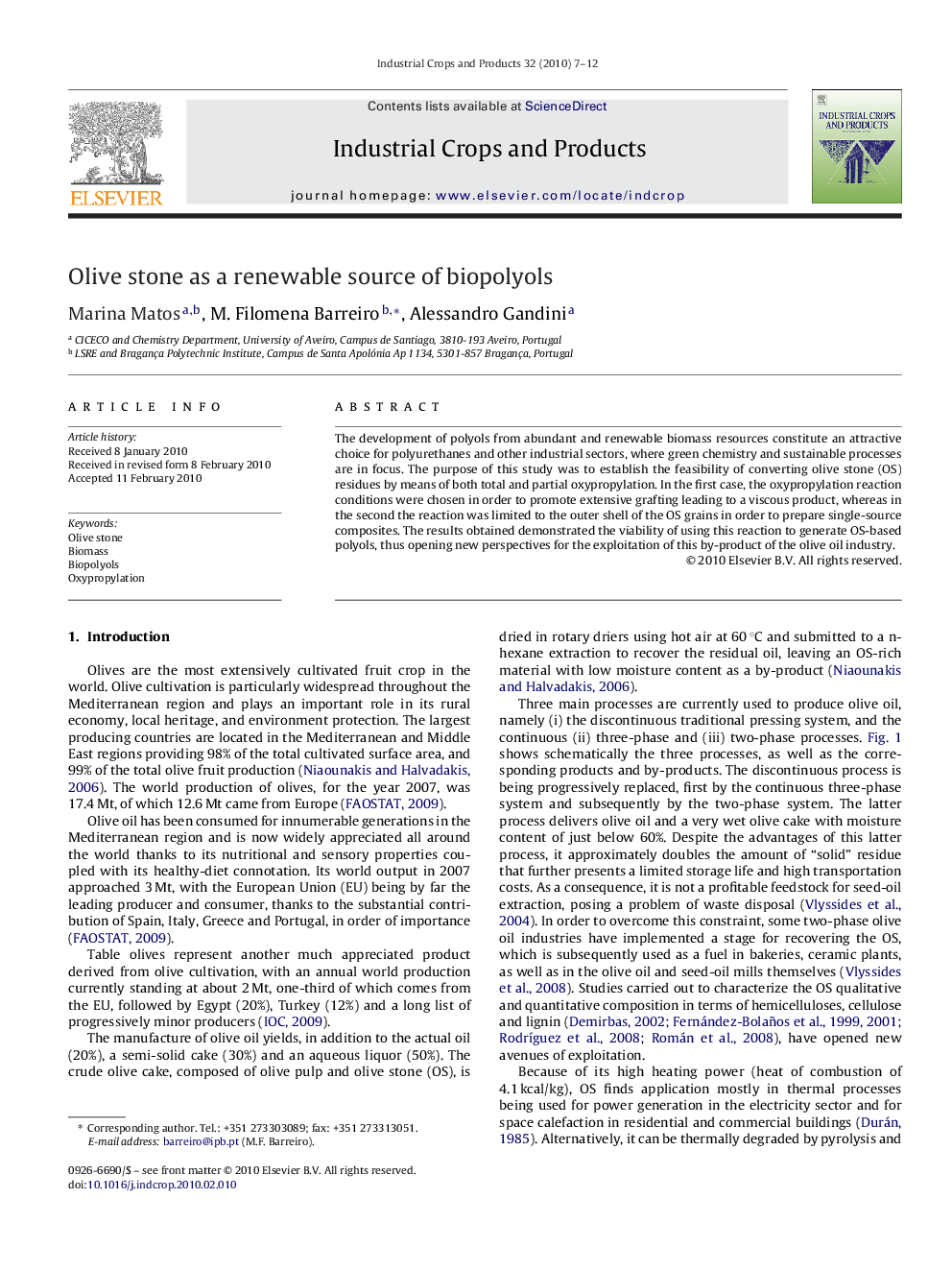| Article ID | Journal | Published Year | Pages | File Type |
|---|---|---|---|---|
| 4514780 | Industrial Crops and Products | 2010 | 6 Pages |
The development of polyols from abundant and renewable biomass resources constitute an attractive choice for polyurethanes and other industrial sectors, where green chemistry and sustainable processes are in focus. The purpose of this study was to establish the feasibility of converting olive stone (OS) residues by means of both total and partial oxypropylation. In the first case, the oxypropylation reaction conditions were chosen in order to promote extensive grafting leading to a viscous product, whereas in the second the reaction was limited to the outer shell of the OS grains in order to prepare single-source composites. The results obtained demonstrated the viability of using this reaction to generate OS-based polyols, thus opening new perspectives for the exploitation of this by-product of the olive oil industry.
